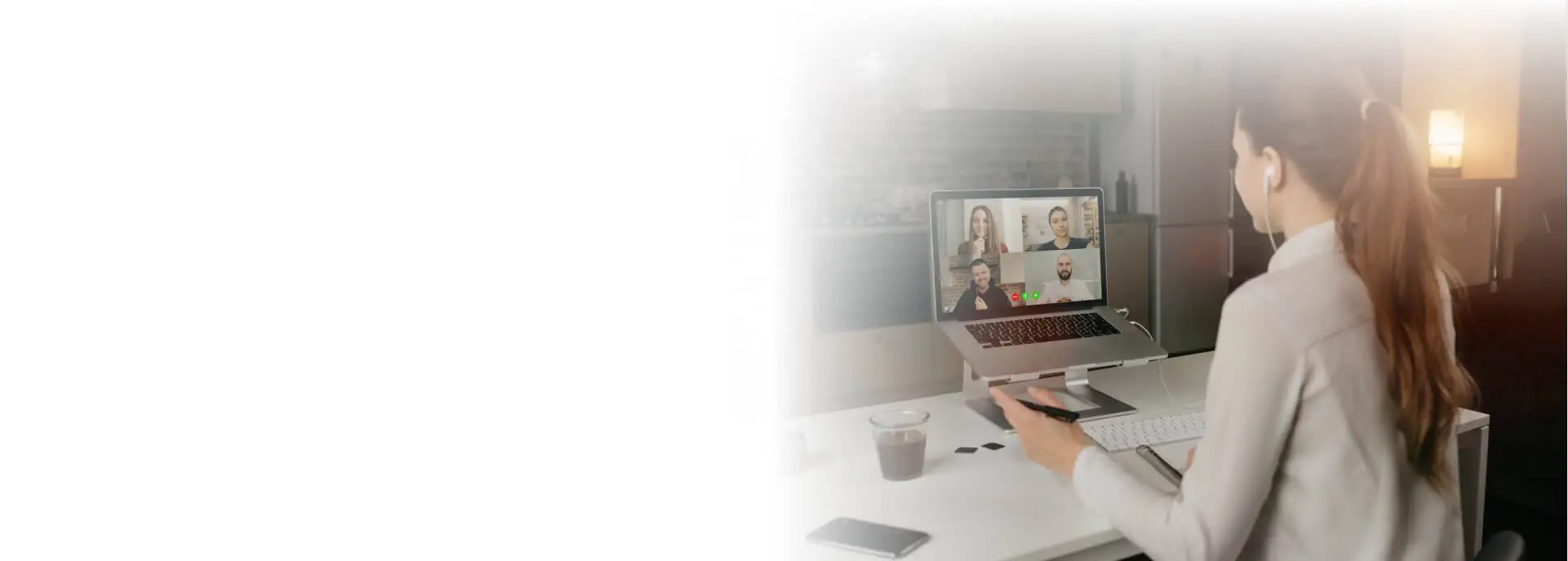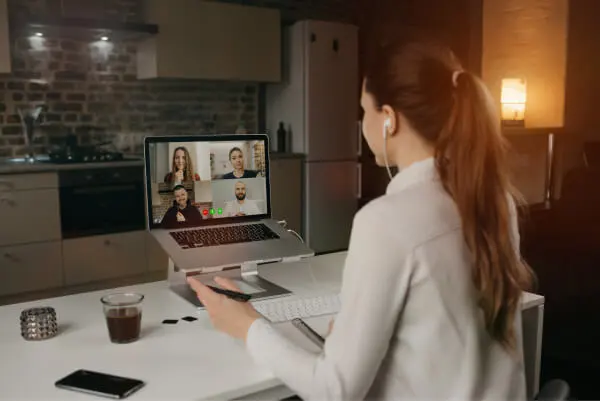
Video Remote Interpretation Services
Video Remote Interpretation (VRI) has become an essential modality, driven by technological advancements that empower interpreters to deliver real-time services remotely, whether from a call center or directly from their home. This innovative approach requires the interpreters to use specialized equipment, including headsets and video cameras, and to conduct their assignments in a relatively private and quiet environment, without the need for a state-of-the-art studio. Initially, VRI services were designed to support sign language interpreting, such as American Sign Language (ASL), the most widely used in the U.S., allowing the hearing-impaired to communicate effectively, both in-person and through remote videoconferencing, ensuring inclusivity and accessibility for all.

Video Remote Interpretation Services
Video Remote Interpretation (VRI) has become an essential modality, driven by technological advancements that empower interpreters to deliver real-time services remotely, whether from a call center or directly from their home. This innovative approach requires the interpreters to use specialized equipment, including headsets and video cameras, and to conduct their assignments in a relatively private and quiet environment, without the need for a state-of-the-art studio. Initially, VRI services were designed to support sign language interpreting, such as American Sign Language (ASL), the most widely used in the U.S., allowing the hearing-impaired to communicate effectively, both in-person and through remote videoconferencing, ensuring inclusivity and accessibility for all.
Video Remote Interpretation Related Content
Fast Forward to Today
The demand for Video Remote Interpreting (VRI) services experienced exponential growth at the onset of global lockdowns, as the urgent need for remote communication became apparent. This sudden need for effective remote solutions led to the rapid transition from traditional conference bridges to more advanced platforms equipped with enhanced features to maintain productivity among teams. Consequently, the initial, limited concept of VRI evolved into a broader framework, now including interpreters working remotely across various language combinations. This expanded approach often allows for effective communication without the requirement for video presence, which is typically seen in webinars.
Remote Simultaneous or Remote Consecutive?
In addition to the well-established VRI services for sign language interpreting (such as ASL VRI), two primary options for delivering services in other language combinations have become readily available in a remote format. Remote Simultaneous Interpretation (RSI) has emerged as a significant advancement, gaining popularity not only among educational institutions providing webinars and remote programs but also for companies across various sectors that aim to enhance their onboarding and ongoing training processes for employees worldwide and at all levels. On the other hand, Consecutive Remote Interpretation is here to stay, having proven indispensable for addressing diverse needs, including hearings, depositions, interviews, discussion groups, and more.
Is Video Mandatory?
Extensive research has explored the psycho-sociological aspects of remote communication, highlighting Video Remote Interpretation (VRI) as the most suitable service type. While it is essential for sign language services, it has been demonstrated that video communication significantly enhances the interpreting process. On-site interpreters have consistently emphasized the importance of visual communication, which is equally applicable to remote interpretation. Elements such as body language, tone, and the overall atmosphere during an assignment play critical roles in delivering superior quality and creating the necessary empathy among participants.
Technology and Equipment
A diverse range of platforms can facilitate Video Remote Interpretation (VRI) services. These include proprietary solutions that utilize secure, encrypted networks to connect users with qualified interpreters, as well as off-the-shelf options that continuously innovate in response to market competition. Popular platforms such as Zoom, Teams, Google Meet, and Cisco WebEx offer various features at different price points. To perform effectively, interpreters primarily require a reliable broadband internet connection, a quiet environment, and a comfortable headset. More advanced setups may incorporate additional devices to enable seamless communication with other members of the interpretation team, ensuring smooth coordination during assignments. The shift toward “convenience” has transformed the traditional marketing mix, with “Place” being redefined in this context. Convenience is now facilitated by a variety of devices, including computers, tablets, and even smartphones, which serve as effective tools in emergency situations.
More Accessible and Less Risky
The technical requirements for Video Remote Interpretation (VRI) services have evolved considerably, becoming far less demanding than the complex infrastructure that was once necessary. This shift significantly reduces costs and increases accessibility, making VRI more available than ever. Savings go beyond just equipment; they eliminate additional expenses such as travel, parking, meals, and commuting, which greatly enhance interpreter efficiency. Furthermore, VRI naturally supports social distancing, facilitating this practice well before it became a prominent focus. By preserving the benefits of on-site interpreting, we not only boost productivity but also create a safe and effective communication environment for all participants.
On-demand Availability
While traditional interpreter bookings are still common, the option for on-demand Video Remote Interpretation (VRI) offers an additional level of flexibility and convenience. This capability allows clients to secure an interpreter for urgent needs within minutes, eliminating the wait for scheduling and reducing the potential frustration of no-shows. However, it is important to understand that flexibility does not imply that interpreters can instantly switch from one assignment to another. They often require time to take necessary breaks, prepare for upcoming jobs, participate in “gym sessions,” and may need to stay beyond the scheduled hour for extended Q&A sessions. This is why our services are typically quoted for a minimum of two hours, or even for half or full days, tailored to meet the specific needs of our clients.
Compliance with the Strictest Verticals
While the legal and healthcare sectors may initially appear challenging for VRI implementation, they can indeed meet the highest standards of security and privacy compliance. In healthcare settings, interpreters adhere to HIPAA regulations, just as they would in on-site assignments, ensuring the confidentiality of patient information. Similarly, legal interpreters are fully capable of being court-certified for remote sessions, guaranteeing that Professional VRI Interpretation meets the necessary standards across all sectors. We confidently assure you that VRI is not only effective but also vertical-friendly!












